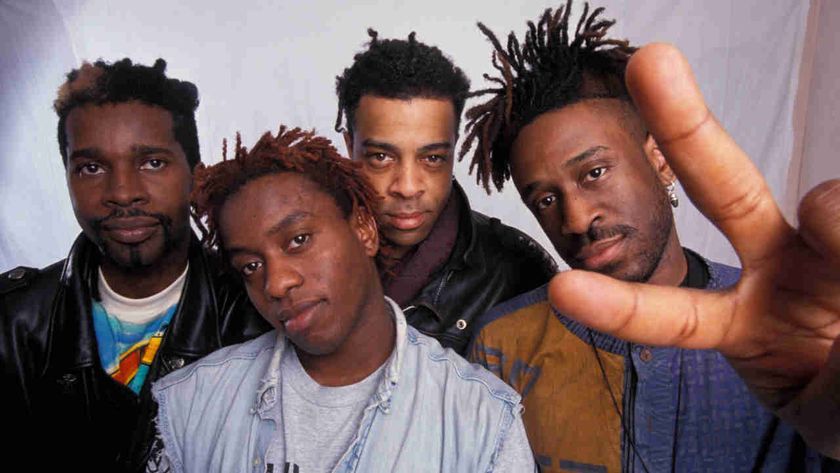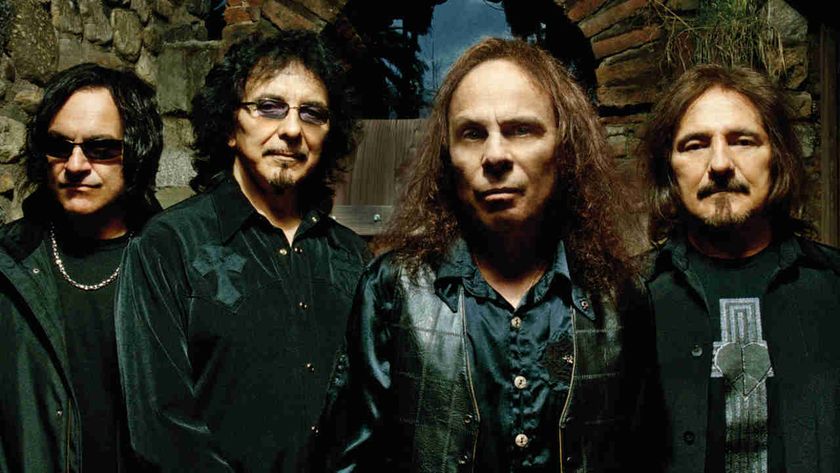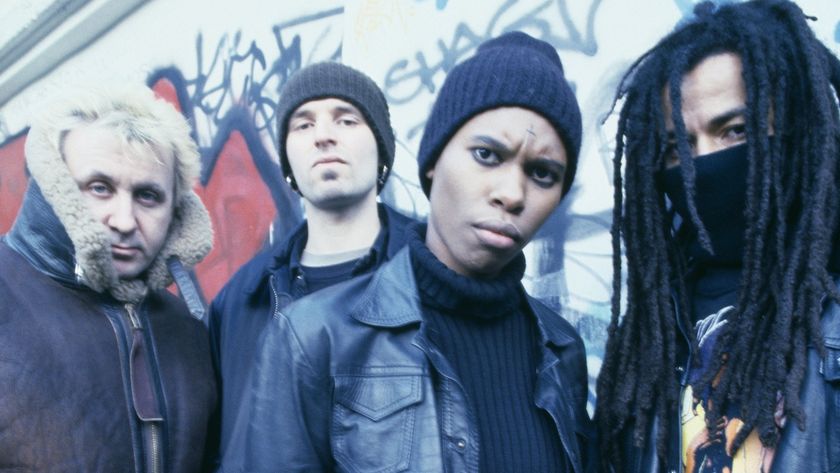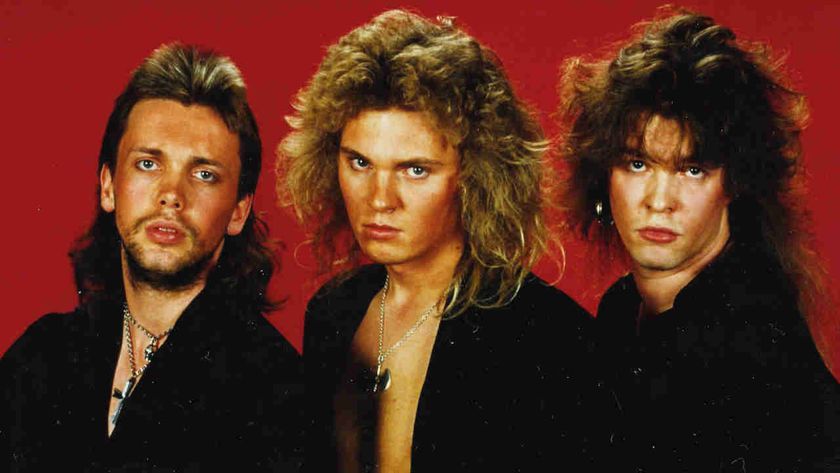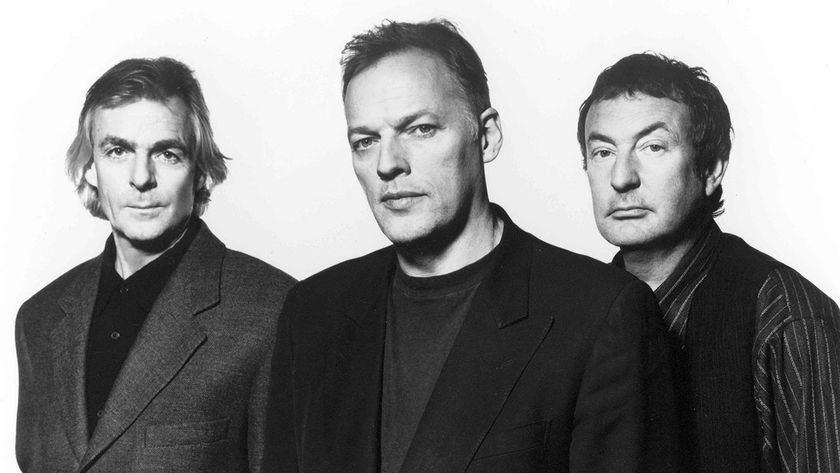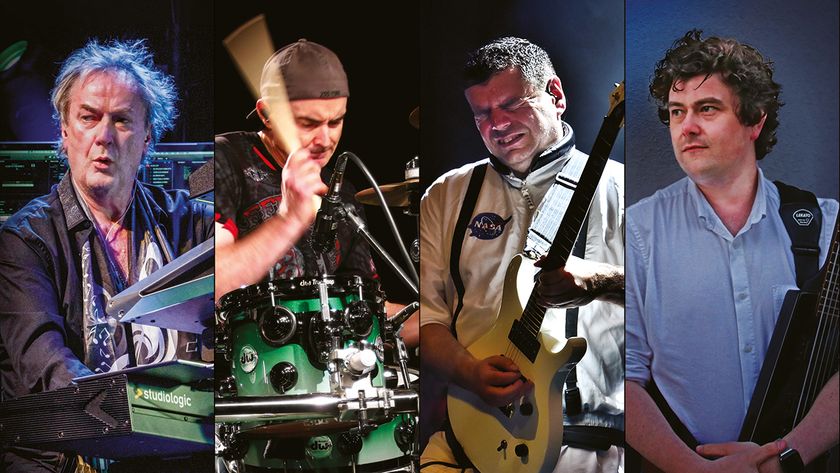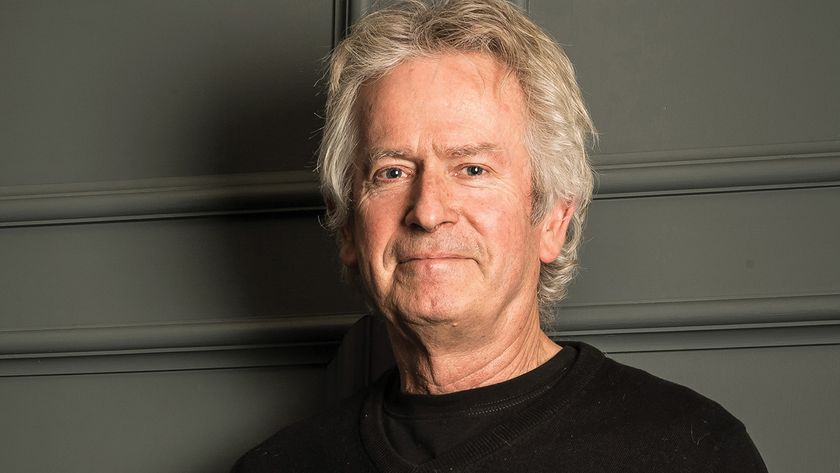60. Motorhead – Motorhead
You can trust Louder Our experienced team has worked for some of the biggest brands in music. From testing headphones to reviewing albums, our experts aim to create reviews you can trust. Find out more about how we review.
When is a band’s debut album not their debut album?Answer: when it’s their third (or possibly fourth) album. Confused? Allow us to explain… When Lemmy formed Motörhead (née Bastard) in June 1975, it was with Larry Wallis of The Pink Fairies on guitar and Lucas Fox on drums. After a couple of singles, the trio decamped to Rockfield Studios with producer Dave Edmunds to record an album that would eventually be called On Parole.
Edmunds didn’t last long in the production chair; he was replaced by Fritz ‘Deep Fat’ Fryer, who had made his name as guitarist with 60s chart-toppers The Four Pennies. Drummer Fox wasn’t in the frame for long either, being swiftly succeeded by Phil ‘Philthy Animal’ Taylor. It was a typically chaotic beginning. No Parole was shelved until October 1979, by which time Motörhead (Chiswick, August 1977) and Overkill (Bronze, May 1979) had already come out. No Parole’s eventual release more or less coincided with the release date of Bomber, and it paled by comparison.
On Parole was weedy and ramshackle. Their debut proper, Motörhead, was a much tougher beast. Lemmy’s vocals sound much more gruff and aggressive, and newly appointed guitarist ‘Fast’ Eddie Clarke’s playing is positively maniacal. Motörhead was born out of a painful period for the band, and it shows: they were on their uppers and on the verge of splitting, until Lemmy became acquainted with Ted Carroll of Chiswick Records. Carroll offered them a smidgeon of studio time, ostensibly to record a single, but the band cranked out an entire album with the support of producer John ‘Speedy’ Keen, a former member of Thunderclap Newman who had also worked as a chauffeur for The Who’s Pete Townshend.
Carroll’s faith in Lemmy paid off and Motörhead actually charted, reaching the heady heights of Number 43 in the UK (albeit for one week only). The album is basically a re-recording of On Parole, minus Fools and Leaving Here. In their place are White Line Fever and Keep Us On The Road, as well as a cover of Train Kept A-Rollin’. If you’re only familiar with Aerosmith’s version of Train…, beware: Motörhead’s rendition will kill your lawn.
59. Free – Tons Of Sobs
Forget the damning statistics – Tons Of Sobs never charted in Britain and limped to 197 in the US a year later – and consider instead the astonishing ones: that Free’s debut was recorded in under week by four British musicians still in their teens. The blues/rock ratio tipped on later albums, but the precocious swagger of I’m A Mover and is Free at their most honest.
Tons Of Sobs was recorded and produced by Island’s in-house ‘mad professor’ Guy Stevens. Walk In My Shadow and a swaggering take on Booker T And The MGs’ The Hunter bottled the aggression John Glover witnessed at the showcase. Alternatively, the Rodgers/Kossoff co-writeMoonshine was a bleak, spectral blues. What united these songs was a rawness, and a guitarist whom, to quote Alexis Korner, knew not to play too many notes and knew how “to use silence”.
58. ZZ Top – ZZ Top’s First Album
Say, what was the name of ZZ Top’s first album again? Ah, yeah: ZZ Top’s First Album. Songs like Neighbor, Neighbor and Backdoor Love Affair might sound like they could come from any time in the band’s career, but there’s a more conventional bluesiness on their debut that sets it apart.
The earthy, Southern-fried simplicity of the recording clashes jarringly with the multimillion-selling Eliminator, but Brown Sugar lays on the blues like treacle, full of classic licks and loads of space - a looseness that suggests Billy Gibbons is just fooling around before the track takes off. Goin’ Down To Mexico is almost Dylan-esque until the breakdown at 1:20 that lets you know this really isn’t “the same old song”. Just Got Back From Baby’s is another highlight. A new bunch of Hombres had arrived.
57. Steely Dan - Can’t Buy A Thrill
Of all the smartasses that ever made a career out of rock’n’roll, such as Frank Zappa, Todd Rundgren and 10cc, none played it smarter than Donald Fagen and Walter Becker, the co-leaders of Steely Dan. To sell 40 million albums, as the Dan have, is no mean feat. But they did it with the most sophisticated and highbrow music ever recorded by a major rock group. From the get-go, the Dan were the coolest band in America. This much is evident in their debut album’s two hit singles: the first, Do It Again, with a Latin rhythm and a melodic glow at odds with its lyrics about a loser beaten down by life; the second, Reelin’ In The Years, a breezy rock’n’roll number with killer lead guitar from Elliott Randall.
Absent from this album was the jazzy vibe that came to define the band in later years. But there were great songs throughout: from the deftly funky Midnight Cruiser to the soul ballad Dirty Work, the latter beautifully sung by the soon-to-be-axed David Palmer.
56. Crosby, Stills, Nash & Young – Déjà Vu
The second debut album for the band… well, for Crosby, Stills & Nash. Joined by Neil Young, they spent 800 hours in the studio, according to Stephen Stills. However, with the exception of the Joni Mitchell cover Woodstock, all the songs were recorded separately by the four. Jerry Garcia and The Lovin’ Spoonful’s John Sebastian were also involved, each guesting on one track.
One highlight was Almost Cut My Hair, recorded just days after the death of Crosby's lover Christine Hinton in a car smash. Crosby delivered one of the most impassioned vocals of his career, his freak flag snapping proudly in the wind as Stephen Stills and Neil Young complemented one another on guitars and Graham Nash gets busy on organ.
55. Stevie Ray Vaughan – Texas Flood
Jackson Browne offered three days in his home studio, and it was all Texan guitarist SRV needed to record the debut that saved 80s blues. On the best moments, like Pride And Joy, his calling cards are already in place: killer songwriting fused with technique and emotive feel.
Texas Monthly hailed Vaughan as the “most exciting guitarist” to come out of the state since Johnny Winter and American music critic Robert Christgau compared his guitar playing with Alvin Lee’s and Robin Trower’s.
“When Texas Flood came out, people our age had never heard anything like it," says drummer Chris Layton. "They said it was cool. They didn’t say we sounded like Freddie King in 1961. It just sounded like new music to them.”
54. Killing Joke - Killing Joke
“It has it all. All of the songs on that first album are brilliant,” says Faith No More’s Billy Gould. “I think it’s one of the top 10 influential albums of all time. It has groove, it’s heavy. I grew up in LA and used to work in South Central, so Parliament and a lot of funk music was there. I was a delivery boy, so I heard it a lot in my car. I was into punk music, so I’d see bands like the Germs and Black Flag. So these were two worlds I couldn’t reconcile, but songs like Change made me see how they could fit together.”
It’s impossible to overemphasise Killing Joke’s influence on music – particularly industrial music – since their inception in London’s Notting Hill in 1978, and their influence continues to this day. Whereas many punk bands increasingly relied on speed, Killing Joke had – and still have – a darker, more stomping, tribal sound, bleak and apocalyptic, perfect for an era in which nuclear war was a frighteningly real threat.
Wardance, the band’s second single and the opening track on their self-titled debut album, is a perfect example of the band at their finest and why, without them, their would be no Godflesh, Ministry or Nine Inch Nails – especially since Killing Joke were unafraid to employ synthesised sounds to add further menace to their madness. It goes without saying that guitarist Geordie Walker is often imitated and never bettered. “The atmosphere’s strange out on the town,” barks frontman Jaz Coleman. He’s not wrong.
53. Elvis Presley - Elvis Presley
Presley’s hip-bucking, feather-ruffling TV appearances helped advance orders of 362,000 (giving RCA their biggest ever album even before release, and prompting other majors to get into bed with rock’n’roll). Tracks like the classic Blue Suede Shoes represented the genre’s first assault on popular culture.
If these 12 songs aren’t instantly affecting it’s because you’ve seen and heard everything that’s come since. To truly understand and appreciate the power of Elvis Presley you have to transport yourself back to 1956. Viewed in this light, the range of musical styles on display – rockabilly, country, gospel, blues and R&B – and the conviction with which Elvis delivers them make for an expertly realised debut album, particularly considering there was no blueprint on which to base itself. This was ground zero. Revolutionary.
52. Uriah Heep – Very ‘Eavy, Very ‘Umble
Introduced by Gypsy, a testosterone-fuelled anthem that pooled in-your-face keys, a chest- beating lead voice, multi-part harmonies and a piledriving riff from guitarist Mick Box, this disc laid the groundwork for a career that has defied the odds to endure for over four decades.
Having famously inspired a Rolling Stone reviewer to promise that she would “commit suicide if this group makes it”, Uriah Heep’s aptly-titled debut album peppered its overall bluster with moments of solemnity, a cover of the Tim Rose-popularised Come Away Melinda revealing a window to a more introspective side.
51. Oasis – Definitely Maybe
Before they became bloated and delusional, Oasis were briefly Britain’s most thrilling band, with classics like Supersonic, Cigarettes & Alcohol and the brilliant Live Forever fusing Liam’s reptile sneer to Noel’s light-fingered talent for hooks. The ratio of arrogance/ability soon tipped the scales, but on this debut, the Gallaghers nailed down the equation.
Years later, even at their most successful, coke-bloated and indulgent, somehow Oasis managed to retain that same sense of connection, thanks largely to an ethos enshrined in their debut album. Because beyond its themes of escape, Definitely Maybe is an album about possibility and hope and growing up without giving in. And while Oasis’ grand adventure may long since have dissolved into cliché and self-parody, their debut remains an impossibly thrilling declaration of independence and intent.

